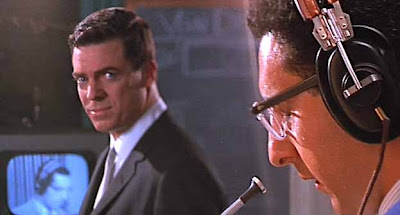 Top 5 Films Starring Paul Newman:
Top 5 Films Starring Paul Newman:1. Butch Cassidy & The Sundance Kid (George Roy Hill, 1969)
2. The Verdict (Sidney Lumet, 1982)
3. The Hustler (Robert Rossen, 1961) & The Color Of Money (Martin Scorsese, 1986)
4. Slap Shot (Hill, 1977)
5. The Hudsucker Proxy (Joel & Ethan Coen, 1994)
 Top 5 Films Directed By And/Or Starring Robert Redford:
Top 5 Films Directed By And/Or Starring Robert Redford:1. Butch Cassidy & The Sundance Kid (George Roy Hill, 1969)
2. Quiz Show (1994)
3. Out Of Africa (Sydney Pollack, 1985)
4. The Natural (Barry Levinson, 1984)
5. Sneakers (Phil Alden Robinson, 1992)
 Top 5 Films About Grifters:
Top 5 Films About Grifters:1. Glengarry Glen Ross (James Foley, 1992)
2. Six Degrees Of Separation (Fred Schepisi, 1993)
3. Jackie Brown (Quentin Tarantino, 1997)
4. Dirty Rotten Scoundrels (Frank Oz, 1988)
5. The Spanish Prisoner (David Mamet, 1997)
 Top 5 Films Featuring Music By Scott Joplin:
Top 5 Films Featuring Music By Scott Joplin:1. Ruggles Of Red Gap (Leo McCarey, 1935)
2. The Public Enemy (William Wellman, 1931)
3. Killer Of Sheep (Charles Burnett, 1977)
4. Reds (Warren Beatty, 1981)
5. Crumb (Terry Zwigoff, 1994)
 Top 5 Films Of 1973:
Top 5 Films Of 1973:1. Mean Streets (Martin Scorsese)
2. Badlands (Terrence Malick)
3. Don't Look Now (Nicholas Roeg)
4. Sleeper (Woody Allen)
5. The Long Goodbye (Robert Altman)
.jpg)









